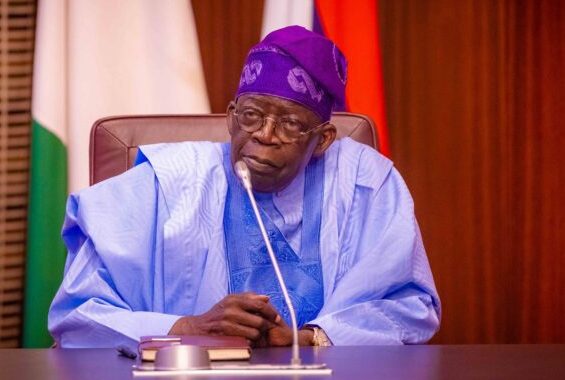Tinubu Floats N4 Trillion Bond to Offset Power Sector Liabilities

The Special Adviser to the President on Energy, Mrs. Olu Verheijen, has revealed that after a meeting between President Tinubu and power generation companies (GenCos) representatives at the Presidential Villa in Abuja on Friday, it was resolved to float a N4 trillion bond.
This advancement was corroborated by a statement signed by the President’s spokesperson, Bayo Onanuga.
During his engagement with the Association of Power Generation Companies, led by former Niger State Governor, Col. Sani Bello (retired), President Tinubu reiterated his administration’s dedication to resolving the sector’s financial impediments.
He acknowledged the inherited liabilities from prior administrations and assured the GenCos that his government would address the issue with transparency and equity.
Tinubu stated, “I accept the assets and liabilities of my predecessors without question. However, that acceptance must rest on credible foundations. I must don the audit cap of verifiability, authenticity, and ensure this inheritance serves as a substantial support structure for essential economic and industrial advancement.”
The President underscored the necessity for patience from GENCOs and financial institutions, highlighting that government agencies are actively engaging audit and legal firms to examine the claims.
“We are present. Market it to your colleagues. Allow us time for verification and validation of the figures,” he remarked.
While reaffirming his faith in a market-oriented electricity sector, the President noted that the industry’s long-overlooked legacy issues are now receiving due attention.
“This enduring issue is now being addressed. I am aware of the savings we’ve achieved on fuel subsidies. We introduced the alternative, CNG, to alleviate the burden on the populace.”
President Tinubu also emphasized the government’s pledge to foster a stable investment climate and eschew drastic measures, such as bank asset foreclosures, against the generation companies.
“To our friends in the banking sector, I urge caution against foreclosures. Sharpen your pencils, but keep an eraser handy. Let us persevere together.”
Describing electricity as “the most significant discovery of humanity in the past millennium,” the President reaffirmed that access to electricity is vital for economic progress and human dignity.
FG Carrying Verified Exposure of N4 Trillion in Debts to GENCOs
The Special Adviser to the President, Ms. Verheijen, attributed the liquidity crisis to “a blend of unfunded tariff shortfalls and market deficits” accumulating over a decade.
She stated that as of April 2025, the Federal Government is managing a verified exposure of N4 trillion in debts to GENCOs, an accumulation tracing back to 2015.
“We have engaged with 27 GENCOs—not all of them are present today—and reviewed their PPAs and gas sales agreements to ascertain the legitimacy of their claims. The GENCOs claimed approximately N4 trillion from 2015 to the conclusion of 2023,” she remarked.
According to her, the Nigerian Bulk Electricity Trading Company (NBET)—the agency mediating between GENCOs and the government—has validated N1.8 trillion of these claims thus far.
“Since that period, we’ve encountered N200 billion in unfunded subsidies accumulating the federal government’s liability.
“So, as of April 2025, the total exposure we are managing currently stands at N4 trillion,” she added.
Nonetheless, Ms. Verheijen cautioned that the figure remains subject to downward revision pending final validation.
“While there is anticipatory approval of this N4 trillion bond program, it remains subject to negotiations and final agreement settlements. Only amounts the federal government validly owes will be included in the issuance by DMO,” she elucidated.
The Minister of Power, Chief Adebayo Adelabu, lauded President Tinubu for his attention to the power sector, asserting that the administration’s reforms have reinstated investor confidence and enhanced performance throughout the electricity value chain.
Adelabu stated that the Tinubu administration enacted the Electricity Act, 2023, decentralizing and liberalizing the electricity market. This was the inaugural legislation signed by the President upon assuming office.
He noted the administration has launched Nigeria’s first Integrated National Electricity Policy in 24 years to drive coherence in sector planning and delivery.
He disclosed that over $2 billion in new private capital has been attracted to expand electricity access nationwide, while the sector’s annual revenue has surged by 70 percent—from N1 trillion in 2023 to N1.7 trillion in 2024—resulting in a reduction of government subsidy obligations by over N700 billion.
He added that installed generation capacity has increased from 13,000 MW to 14,000 MW, with an all-time peak generation of 5,801 MW and a record maximum daily energy delivery of 120,370 MWh, achieved on March 4, 2025.
According to him, there has been no national grid collapse in 2025, a direct result of interventions under the Presidential Power Initiative, which has augmented transmission capacity by over 700 MW.
He reported significant progress in narrowing Nigeria’s metering gap through the N700 billion Presidential Metering Initiative, funded via FAAC, and the World Bank-supported Distribution Sector Recovery Programme (DISREP), which has already delivered 300,000 smart meters out of 3.45 million procured.
While acknowledging these advancements, Adelabu cautioned that the sector faces an urgent liquidity crisis that could jeopardize the sustainability of ongoing reforms and investments.
In May, Nairametrics reported that President Tinubu would convene a meeting with GenCos leadership to address the over N4 trillion debt owed to them by the Federal Government.









